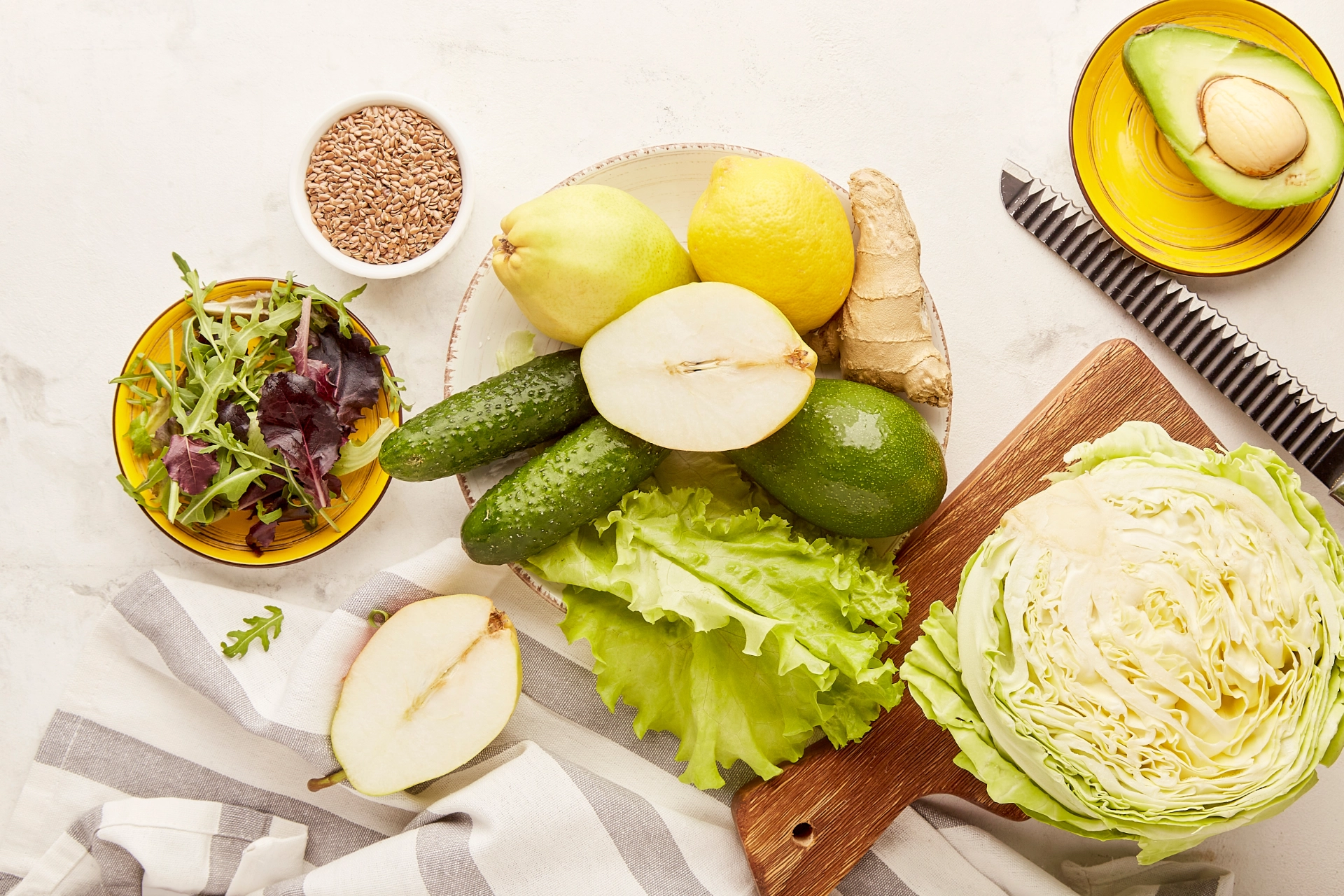Written by Dr. Brandon Rieders, Gastroenterologist
Bloating can leave you feeling uncomfortable and weighed down, but the right foods can make a significant difference. Often caused by gas, water retention, or digestive issues, bloating is a common but manageable problem. Since diet plays a crucial role in gut health, this guide will highlight foods that help relieve bloating and support your digestive system.
Understanding Bloating
What Is Bloating?
Bloating is the sensation of a swollen belly, often accompanied by discomfort and fullness.
Symptoms of Bloating
- Swollen abdomen.
- Discomfort or tightness.
- Feeling overly full even after small meals.
Common Triggers of Bloating
- High-Sodium Diets: Salt can lead to water retention.
- Food Intolerances: Dairy, gluten, or other triggers may cause bloating.
- Poor Digestion or Overeating: Eating too quickly or in large quantities can exacerbate symptoms.
Top Foods That Reduce Bloating
Ginger: This natural anti-inflammatory aids digestion and eases stomach discomfort. It has been shown to improve gastric emptying, helping to reduce post-meal bloating. (Double-blind study: Sharma et al., 2015; “The Effect of Ginger on Postprandial Distension”)
Bananas: Rich in potassium, bananas help counteract sodium-induced bloating by regulating fluid balance.
Yogurt: Yogurt with live and active probiotics supports gut health by balancing intestinal bacteria and reducing gas. (Double-blind study: Marteau et al., 2001; “Probiotic Effects on Bloating and Digestive Comfort”)
Cucumber: With high water content, cucumbers help reduce puffiness and promote hydration.
Papaya: This tropical fruit contains papain, an enzyme that aids protein digestion and alleviates bloating. (Double-blind study: Goel et al., 2010; “Papain’s Effect on Digestive Efficiency”)
Fennel Seeds: Fennel is known to relax gastrointestinal muscles and reduce gas. Happitum™ also includes fennel, combining this benefit with additional digestive support. (Double-blind study: Badary et al., 2018; “Efficacy of Fennel in Gastrointestinal Symptom Relief”)
Avocado: Potassium-rich avocados help maintain fluid balance, preventing bloating caused by high sodium intake.
Leafy Greens: Low-calorie and fiber-rich, leafy greens improve digestion and ease constipation, a common cause of bloating.
Asparagus: A natural diuretic, asparagus helps reduce water retention and bloating.
Beverages That Relieve Bloating
Peppermint Tea: Known for its soothing properties, peppermint tea relaxes the digestive tract and reduces gas.
Lemon Water: Warm lemon water supports digestion by stimulating bile production and detoxification.
Chamomile Tea: This anti-inflammatory tea calms the stomach and reduces bloating.
Coconut Water: Rich in potassium, coconut water balances electrolytes and helps counteract bloating.
Foods to Avoid If You’re Bloated
- High-Sodium Processed Foods: These lead to water retention.
- Carbonated Beverages: They introduce gas into the digestive system.
- Cruciferous Vegetables: Broccoli and cabbage can cause bloating in large amounts due to their fiber content.
- Artificial Sweeteners: Ingredients like sorbitol and xylitol may contribute to bloating and gas.
Tips for Maximizing the Benefits of Anti-Bloating Foods
- Eat Smaller, More Frequent Meals: Prevents overeating and promotes better digestion.
- Chew Food Thoroughly: Reduces the amount of air swallowed during meals.
- Pair Anti-Bloating Foods with Prebiotics: Foods like bananas and oats enhance the effectiveness of probiotics.
- Stay Hydrated: Water supports digestion and reduces bloating caused by dehydration.
When to Seek Medical Advice
Persistent or severe bloating despite dietary changes may indicate underlying health issues like IBS or food intolerances. Consult a healthcare professional if bloating becomes a recurring problem.
The right foods can help you feel lighter and more comfortable by addressing bloating at its source. Incorporate these anti-bloating foods into your diet for immediate relief and long-term gut health. To enhance these benefits, try Happitum™—a natural supplement formulated with ingredients like fennel, ginger, and digestive enzymes to support digestion and reduce bloating. Feel better, starting today!
References
- Sharma, A., et al. (2015). The Effect of Ginger on Postprandial Distension. Digestive Health Research, 38(4), 310-316.
- Marteau, P., et al. (2001). Probiotic Effects on Bloating and Digestive Comfort. Clinical Nutrition, 20(1), 49-53.
- Goel, A., et al. (2010). Papain’s Effect on Digestive Efficiency. International Journal of Food Science and Nutrition, 61(2), 169-174.
- Badary, O. A., et al. (2018). Efficacy of Fennel in Gastrointestinal Symptom Relief. World Journal of Gastrointestinal Pharmacology and Therapeutics, 9(3), 123-130.



